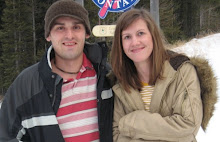In this, the second volume of His Dark Materials, Philip Pullman continues to develop the grand Miltonic scheme of an emerging masterpiece of modern Fantasy. New characters join the mythically resonant cast of the first novel, Northern Lights (reviewed elsewhere in infinity plus); new worlds are added likewise, fresh contrasts of humanity's innocence and experience; the basis for the Armageddon of the final installment, The Amber Spyglass, is laid. The pace of invention and action does not slacken.
By the end of Northern Lights, it was clear that the trilogy's underlying conflict was between two principles: that of Authority (God, the Calvinistic Church of the Magisterium, inflexible Destiny, dogma, control), personified in the heroine, Lyra's, mother, Mrs Coulter, head of the Church's sinister Oblation Board; and that of Human Free Will (the Promethean or Satanic, the aspiring, the charismatically hubristic), embodied by Lyra's father, the resourcefully and industriously rebellious Lord Asriel.
One of the most impressive features of this book is the manner in which it takes that established opposition and weaves it, complexly, into a wide range of subplots, characterizations, and symbols, so that what is normally the flattest part of a trilogy, the section that must somehow keep the narrative going between the creativity of its opening and the drama of its climax, is constantly fascinating, a set of copiously imaginative variations on simple themes, subtly working together. This orchestration, in musical analogy, marks Pullman as Fantasy's pre-eminent Composer.
And so a symphony of plot elements proceeds. The action moves between three parallel universes: the steampunk milieu of Lyra's version of the Earth, with its scheming clerical bureaucrats and sinister presentiments of catastrophic war; our late Twentieth Century, with its urban hardships and blinkered secular obsessions; and a third alternate world, once a paradise of happiness and moderation, resembling then a full flowering of the potentials of the Italian Renaissance, but now ravaged by soul-eating Spectres, most of its surviving inhabitants orphaned children, in whom the Spectres have no interest. Lyra has fled the first Earth, a boy, Will, the second; they meet in the third, which acts as a sort of crossroads of the multiverse. Both protagonists have animal familiars; both are shadowed by their fathers, whom they have lost, and for whom they must search; both are attached by destiny to artifacts of cosmic significance, Lyra to the golden compass that measures Truth, Will to the subtle knife that can detect and open the gates between the worlds. Joining forces, they develop in tandem, maturing and learning in a deftly rendered harmony, as if they are complementary aspects of a single whole. The implication mounts that this growing-up, the theme of so many YA novels, is in this text the key to the coming to adulthood of the entire human species.
For Pullman is writing a manner of sequel to Paradise Lost. The last war in Heaven, between God and the rebel angels, was, as in Milton's account, lost by the latter tens of thousands of years ago, leading to the enslavement of all sentient beings to the iron Will of God. Now, in Asriel, there is a new Satan, who plans a new uprising. The angels, and their creations (the human species) have a second chance at free choice, free will, which might be understood as true adulthood. As Lyra and Will mature, they mature for all of us. By this token, Pullman's other subplots - quests by various adults, the aeronaut Lee Scoresby's to protect Lyra, the witch Serafina Pekkala's for the same, Will's father's for Will the knife bearer, Mrs Coulter's for the daughter she would kill, Asriel's for victory over the God who restrains him - are mere reflections of the central quest the children undertake. All adults, the world itself: these are also children struggling to grow up. And this has vast ramifications.
The Subtle Knife verges on Science Fiction in its speculative underpinnings. Scientists in our Oxford, helped along by Lyra, determine that the "Dust" the godly Magisterium fears, the dark matter that may constitute the bulk of the universe's mass, is made up of sentient elementary particles; these are, in a nutshell, great hosts of rebel angels, in a continuation of the fusion of theology and physics hinted at in Northern Lights. Matter itself is rebelling against the adamantine physical laws that have restrained its free behaviour - but the Renaissance world invaded by Spectres contains authentic winged angels, and the vampiric Spectres are in turn corrupted angels; so physical particles and spiritual metaphors are one and the same in Pullman's scheme. The Created wish to be free of their Creator, and this applies to every atom as to every thinking being. The Armageddon in The Amber Spyglass will be something to read.
It could be argued that the very setting of His Dark Materials, its range of alternate worlds, is a metaphor for the free will the rebels seek: all options realized, in parallel, rather than the stable monolithic reality Authority desires. Pullman's sympathy certainly lies with the rebellious instinct. But there are very clear hints that he also believes a balance must be struck: his narrative focus is on the striving, unhubristic Lyra and Will, not on their ambitious parents; and the Spectre-afflicted world seems very much like an Eden destroyed by the alchemic meddling that created the subtle knife. Perhaps there are proper limits to knowledge and aspiration; perhaps Authority has a place.
Sunday, December 7, 2008
Subscribe to:
Post Comments (Atom)

No comments:
Post a Comment